Article first published on politics.co.uk by Rebecca Burns on 14 June 2010.
The new Penrith and the Borders MP is about as far from being a ‘career politician’ as you get, having packed in more than most before entering the Commons. His enormous walk, which took two years, was sandwiched by a stint in the Black Watch and an illustrious career in the Foreign Office on one side, and an OBE and a few publishing successes on the other. Yet rather than the towering superman you would expect of a formidable figure, he is a slim, demure presence with eyebrows that wiggle when he’s deep in thought.
I meet up with him at his parliamentary office and we head off to grab a coffee and talk politics. Halfway down the corridor Stewart doubles back to his office for his forgotten parliamentary pass. I suspect it’s just an excuse for more walking. He has company though, so we get the lift rather than trotting joyously down the five flights of stairs.
“I think you learn about a place by walking through it,” says Stewart. He’s talking about how his love of walking shaped his election campaign, although presumably this also applies to his technique for finding his way around parliament. Rather than navigate the country’s geographically largest constituency by motor, he went on a two-month boundary-to-boundary walking tour. “I didn’t get in a car during December and January – I was walking,” he says as he discusses his unorthodox campaign methods. Constituents sometimes walked with him on his hike, discussing as they went. “I don’t think you should whizz to a village, jump out, stuff leaflets through doors and then whizz off to the next place. That isn’t my sense of how the politicians should talk to the public.”
For him, politics is “a conversation, a debate and a dialogue about [people’s] identities their imaginations and their communities”. This all sounds rather like Cameron’s ‘new politics’ and ‘big society’ talk. But with Stewart’s unconventional approach, when his views coincide with the Tories it seems more happy coincidence than anything else.
I ask him whether he has held a surgery yet, and he tells me that the next day he has 14 meetings in his constituency. “I’m not sure of the distinction between a surgery and a meeting” he says uncertainly before adding “I’ve got two hours which is a sort of drop in.” I confirm that, traditionally, this is his surgery.
Even if he is not familiar with the modus operandi of his new job, he is more than capable of coping with the bigger tasks. Time spent in the rural villages of Afghanistan and Iraq, as both villager and governor, informs his outlook of the rolling green fields of his Cumbrian constituency. In both places people “sense what differentiates their village”, says Stewart, and he understands the accompanying local mentality. The focal constituency campaign for rural broadband is also familiar territory as “it is something like setting up an NGO or a charity”. Stewart established Turquoise Mountain, a development NGO in Afghanistan. He has transferred that dynamism and organisation to his constituency campaigns, where he recognises “it’s not good enough to just say this is really important, you have to prove that to people”.
His experiences in Iraq (as a provincial governor for an area the size of Northern Ireland after the coalition invasion) and other turbulent countries give him a wealth of international diplomatic expertise. But Stewart says he’s “trying to focus on Cumbria”. He sounds slightly weary of large-scale diplomacy or policy-making. “I think we’re in too much of a rush – it’s almost impossible, I suspect, to say anything sensible or serious unless one has quite a lot of time to explain, to think, to ponder.”
I sense the appeal of being a local MP lies, for him, in the mandate to go at his own thoughtful pace, have more control and institute what he feels to be more effective change. According to Stewart, policy making is “an art not a science”. I ask what he hopes for in his career and, appropriately, the answer I get (with a wiggle of the eyebrows) is almost poetic. “To try to begin again and again, to say again and again, to shape again and again a common vision for Britain and to try though one life in a small way to shape us and nudge us and push us in the direction of which one might be proud.”
Stewart is certainly not short on vision, ambition or ability. An eccentric, his head does appear to be slightly in the clouds (despite his love of walking) but even this works to his advantage, giving him a valuable overview of situations.
The modern day Lawrence of Arabia (as he has been called in the past) commented a couple of years ago that he was moving back to the UK from Afghanistan to try and ‘normalise’. When I ask what he meant by that, the inevitable eyebrow-wiggling is followed by some poetry. It’s an extract from Wallace Stevens’ The Poem That Took the Place of a Mountain about being “complete in an unexplained completion” and recognising “his unique and solitary home”. Does the adventurer finally want to settle? I doubt it. But the business of Westminster will be a satisfactory enterprise until itchy feet seize Stewart once more.




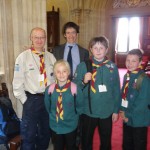
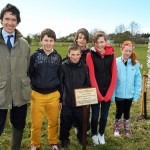

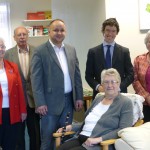
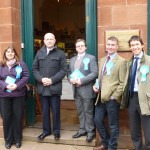
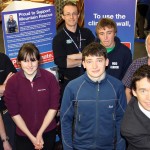
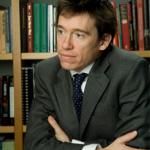
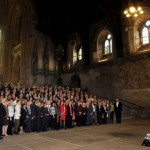
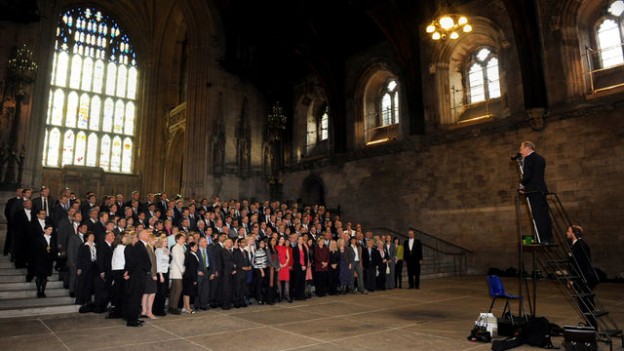
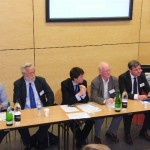
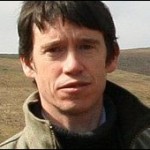
 Article first published in BBC News on 1 June 2010.
Article first published in BBC News on 1 June 2010.